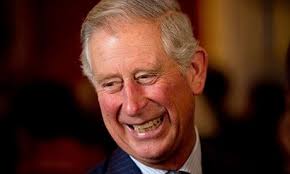
Introduction
King Charles III ascended to the throne in September 2022, following the death of his mother, Queen Elizabeth II. This transition marks a significant moment in British history, as it ushers in a new era for the monarchy, redefining its role in contemporary society. Observers and royal watchers alike are keen to understand how King Charles will shape his reign and address pressing global issues, such as climate change, social inequality, and evolving national identities.
King Charles’s Vision and Initiatives
King Charles, who has long been a vocal advocate for environmental conservation and sustainability, is expected to integrate these themes into his royal duties. His commitment to the environment is exemplified by the establishment of The Prince’s Trust, which has empowered young people and supported environmental initiatives since 1976. Since becoming king, he has continued to highlight the need for action on climate issues, even as global leaders convene for climate agreements to combat the escalating crisis.
Moreover, King Charles’s reign has also shown a dedication to fostering interfaith dialogue and promoting social cohesion in the UK. His belief in the importance of community service aligns well with his role as a constitutional monarch who represents all citizens, regardless of their backgrounds. By endorsing various community initiatives, he aims to connect with diverse groups throughout the nation and signal his support for inclusivity.
Challenges Ahead
However, King Charles faces numerous challenges in his reign. Recent public opinion polls have indicated that while awareness of the monarchy remains high, support for its continuation is not unanimous. Some subjects have expressed dissent, particularly among younger generations who may perceive the monarchy as outdated. Additionally, ongoing debates surrounding the relevance of the Crown in a modern democratic society will certainly test his leadership and engagement strategies.
Conclusion
As King Charles navigates the complexities of the hereditary monarchy, his leadership style will play a crucial role in defining his legacy. The coming months and years will shed light on how he balances tradition with the expectations of a rapidly changing society. Many anticipate that through his initiatives and public engagement, King Charles can redefine the monarchy’s role, bridging the gap between history and modernity while building a stronger connection with the UK public and the broader Commonwealth. Ultimately, how he addresses these challenges could shape not only his reign but the future of the monarchy itself.
You may also like

Understanding the Current Political Landscape in the UK

The UKIP Party: Recent Developments and Future Outlook

Boris Johnson: A Look at His Current Political Landscape
SEARCH
LAST NEWS
- Remembering Wendy Richard: The Promise to Co-Star Natalie Cassidy
- How Did Anglian Water Achieve an ‘Essentials’ Rating for Mental Health Accessibility?
- Shai Hope Leads West Indies in T20 World Cup Clash Against South Africa
- What We Know About Weston McKennie: Future at Juventus and Past at Leeds
- What We Know About the Upcoming Live Nation Antitrust Trial